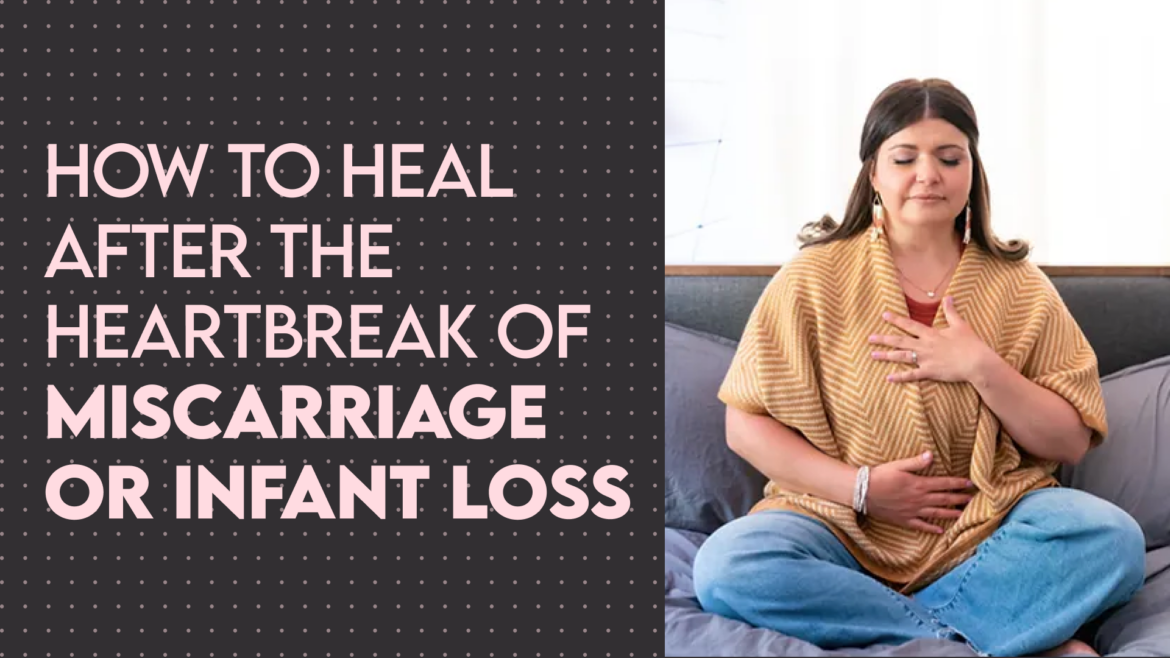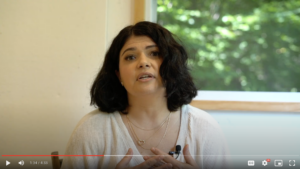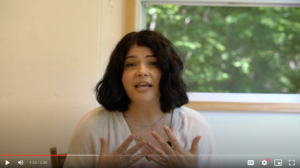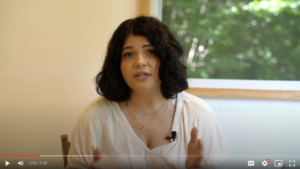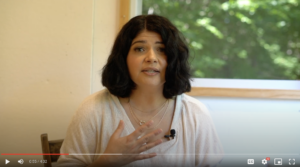This is an extremely difficult topic to share and one I do not take lightly. If you have experienced the trauma of a miscarriage or infant loss, I know you and your loved ones most likely feel more pain and sorrow than you have ever felt in your life. Please know that you are not alone.
To help women who are facing this tremendous grief, my team and I have put together several resources dedicated to providing you with the support and encouragement you need to help begin the healing process.
These resources can be found in the Health Tip Library in the SLAM app.
Pregnancy and Infant Loss Awareness Month is in October, and I had the opportunity to connect with Lindsey Huttner to learn more about how to honor this important time of remembrance.
A maternal mental health therapist and a licensed clinical social worker, Lindsey has worked with thousands of women who have suffered from miscarriage or infant loss through her private practice, Butterfly Effect Therapy, and coaching website, Unlock Your Therapy.
In the interview below, I had the opportunity to ask her for advice on how to heal after experiencing a miscarriage or infant loss.
Interview with Lindsey Huttner, Licensed Clinical Social Worker:
What Causes Miscarriage? What Causes Infant Loss?
Lindsey: I know this is a frustrating answer, but the majority of cases are completely unknown.
With regard to miscarriage, according to the Cleveland Clinic, 50% of miscarriages that happen in the first trimester are due to chromosomal abnormalities that doctors typically can’t detect.
It has nothing to do with something heavy you moved or a workout you did, those activities are actually good for you!
This is the case for infant loss as well. The majority of cases are completely unknown, but it has nothing to do with something you did to cause it.
Statistics can be helpful for women who are trying to find answers. I put together these videos with information about the number of women who experience miscarriage and the number of women who experience infant loss.
What About IVF? Shouldn’t Abnormalities Be Detected After Rigorous Testing that is Done?
Lindsey: Because doctors still can’t detect every chromosomal abnormality, even those who have had extensive testing done on the embryo through IVF might still experience a miscarriage, which can be deeply confusing.
I find that women who experience loss after IVF tend to blame themselves even more. If they had extensive testing and medical support throughout the process and nothing was detected, they often feel it must be something they did to cause the loss. This is simply not true.
Can Stress Make You Have a Miscarriage?
Lindsey: Women might feel that being under a lot of stress, especially stress outside of their control, might have caused the miscarriage or infant loss. This is also not true.
I see a lot of clients who self-blame and want to find a reason why this happened to them, which is completely normal. Please know that it is nothing you did to cause it. It is outside of your control.
How Many Pregnancies End in Miscarriage?
Lindsey: According to the Mayo Clinic, “About 10% to 20% of known pregnancies end in miscarriage. But the actual number is likely higher. This is because many miscarriages happen early on, before people realize they’re pregnant.”
What are Some Words of Wisdom or Healing Advice You Can Offer to Women Who Recently Suffered a Miscarriage or Infant Loss?
Lindsey: It is comforting to know that the majority of women (well over 85%, according to the American Pregnancy Association) go on to have normal pregnancies after experiencing loss. I always tell my clients to focus on that 85% – I find it to be so helpful and encouraging.
If you have experienced loss and have a medical appointment coming up, let your doctor know ahead of time. This is because they often will not have it flagged on your medical chart. I especially encourage this if you’re going back to the same medical center where you experienced the loss initially. Ask that they put you in a different exam room or ultrasound area, as being in the same space where you experienced the loss can be extremely triggering.
I understand how difficult it is to call a doctor’s office and make this request, so I recommend having a partner or friend/family member call on your behalf.
What are Some of the Emotions I Might Feel After a Miscarriage or Infant Loss?
Lindsey: Many women go through five stages of grief, which I talk about in further detail in this video. Some of the emotions you might experience include anger, depression, guilt/self-blame, and anxiety about the future, including future pregnancies.
What are Some Ways to Cope and Heal After Loss?
Lindsey: In my practice, I like to teach my clients about something called “thought diffusion.” When a negative thought comes in – such as feeling blame or anger towards your body – let the thought enter your mind, but then let it pass. I like to visualize clouds, because clouds come and go.
Allow the thought to come in, and label it in your mind as a thought. Remind yourself that this is simply a thought, you are not your thoughts, and thoughts are not facts. Then, try to let the thought pass. After this happens, bring yourself back to the present moment by engaging in an engrossing activity, such as listening to a podcast, taking a bath, making a cup of tea, or doing something else that allows you to be fully present and engrossed in the activity.
As the thoughts come through, continue to label them as thoughts, then allow them to pass. Be mindful that the clouds are present but are far away and can come and go.
How Can I Memorialize the Loss?
Lindsey: Some women want to honor the memory and memorialize their loss, and others don’t. Whichever path you choose, please know that both options are completely normal and healthy.
If you do want to honor the memory, you might save the ultrasound picture or put together a memory box. I also recommend talking about the loss with people you’re comfortable with, as it is often helpful to express what you’re experiencing throughout the healing process.
Here is a website that offers a free loss support group.
Should I Feel Guilty About Moving on or Trying to Get Pregnant Again?
Lindsey: There is nothing wrong with moving on, and it is perfectly healthy and normal to want to get pregnant again! As time goes on, you can carry that remembrance with you, and move forward without feeling guilty about doing so.
You also might find that your relationship with your partner has changed after experiencing loss. I put together this video with guidance on how to help couples navigate this challenging time:
How Can I Reconnect with my Body Again?
Lindsey: I find many women tend to ignore their bodies after experiencing a traumatic loss. They no longer touch their belly in the shower, or they might ignore their body altogether after experiencing loss. I strongly recommend practicing yoga, whether online or in a class, to help reconnect with your body.
I also recommend going on “mindful walks.” Use the five senses as you walk. Describe what you see, smell, feel, taste, and hear. Try to leave your phone at home, or leave it on silent in your pocket to remain as present as possible. As you walk, feel the sun on your face, your feet on the floor. Breathe in the fresh air, take in the scents around you. Try to remain as present and connected as possible.
If you are struggling with this, I put together this video to help find ways to trust your body again:
Any Final Thoughts?
Lindsey: Please know that these emotions are not going to remain with you forever. Grief takes time, and each day brings more and more healing. You are not alone in this.
How to Contact Lindsey Huttner
If you are interested in working with Lindsey and her team, please send an email to [email protected] or call 917-797-4945.
For additional information about Lindsey and her work, please visit ButterflyEffectTherapy.com and UnlockYourTherapy.com.
Healing Resources for Moms are Now Available in the SLAM Pregnancy App
I invite you to visit the pregnancy section in our SLAM app for additional resources to help you begin the healing process, and to check out our free video resources from Lindsey Huttner.
